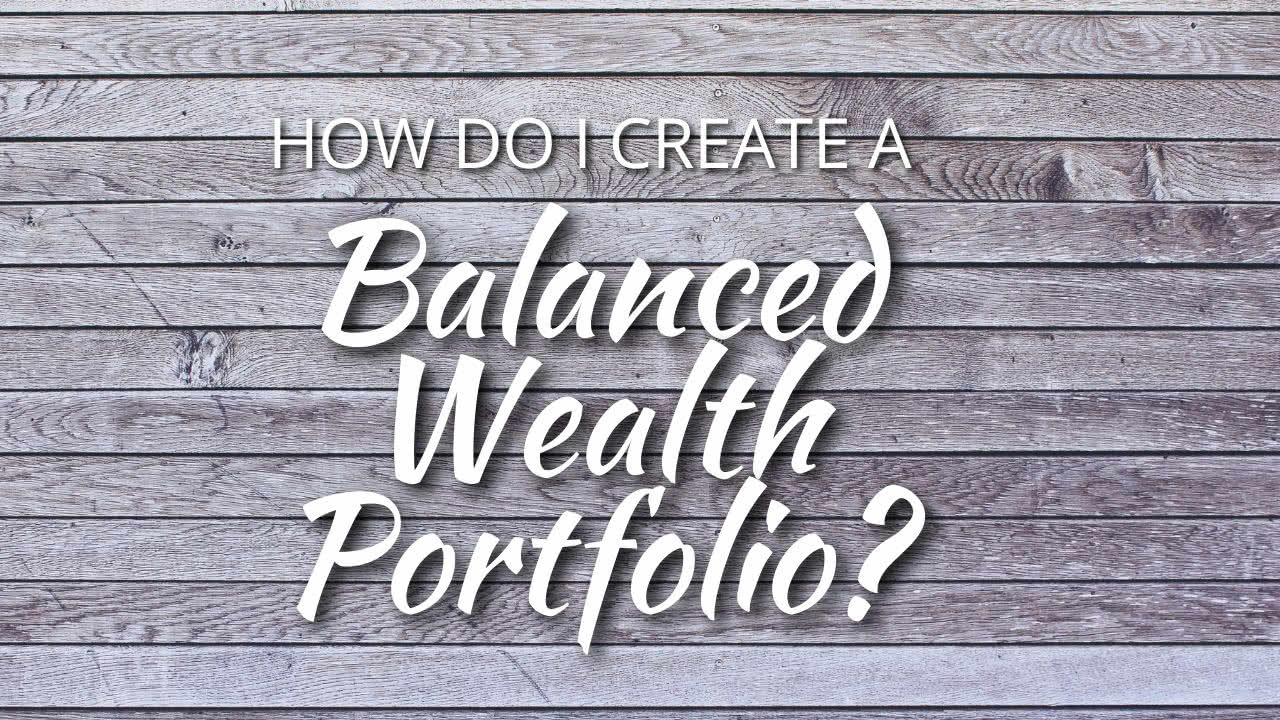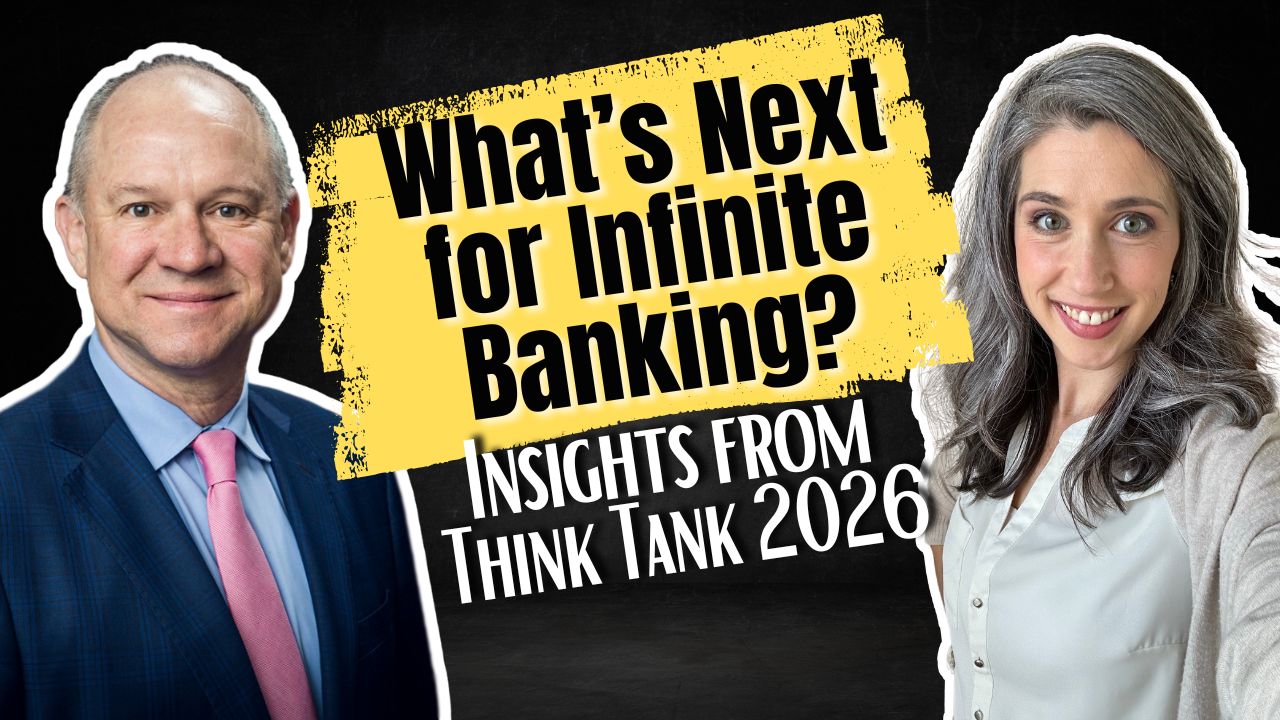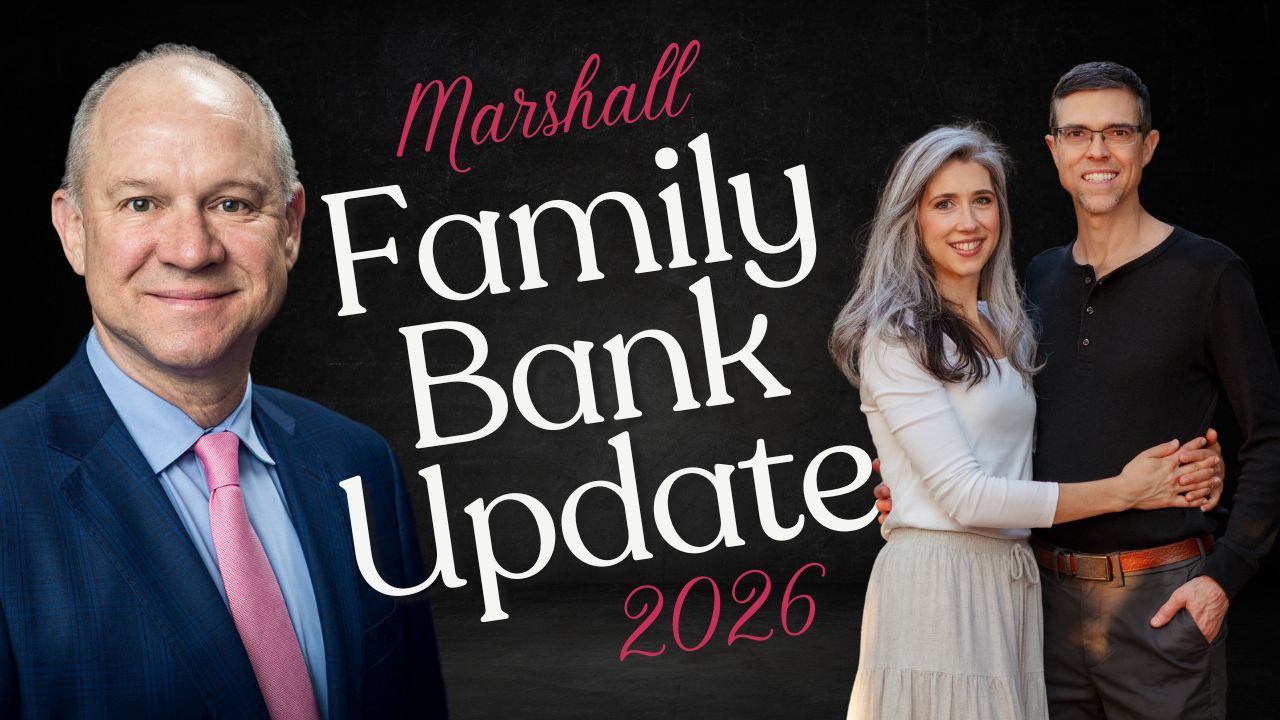
Creating a Balanced Wealth Portfolio
We like to ask our audience, what is your biggest challenge with building wealth, and we receive so many insightful questions. Today, we’re answering a question from Matt about how to create a balanced wealth portfolio.
So if you want to make sure you’re thinking through all the pieces of your financial plan and doing the best you can with your money for today and for the future, tune in now!
Podcast: Play in new window | Download (Duration: 43:10 — 49.4MB)
Subscribe: Apple Podcasts | Spotify | Android | Pandora | Youtube Music | RSS | More
Table of contents
Answering a Viewer Question
We love when our audience asks questions, and we often answer them live in our recordings. However, we recently received a question from a viewer named Matt, and we thought it was a wonderful opportunity to dig into the topic more thoroughly.
Matt asked, “How [do I] create a balanced wealth portfolio that includes a mixture of short, mid- and long-term savings for now and the future?
[I’m] weighing between
- Backdoor Roth (for someone that has been funding a Roth for 20yrs)
- 401k….where to stop….do you fund just to your match? Or what’s the income level where a couple loses the tax advantage of FULLY funding (I was always taught, get to a point where you can fully max for tax savings… but now I’m not sure)
- Independent stock investing in a basic brokerage account
- Whole life Cash Flow accounts (when does it make sense to [add] this into one’s investment strategy).”
If you’ve been thinking about how to do the best that you can with your money, this is the post for you.
Starting with “Why”
Financial advice is not one-size-fits-all… although it’s often talked about as though it is. The reason it isn’t is because everyone has a different set of goals, as well as different financial histories. That’s why it is so important to understand your “why” when building a balanced wealth portfolio. What are you saving for, and why do you want to optimize your money? In other words, what is the purpose of your money?
Retirement is one of the most frequent savings benchmarks, yet it’s an incomplete goal. Retirement means different things to different people. The FIRE movement seeks to “retire” at 40, but most of them only retire from a job they don’t like. They continue to work in other capacities—filming videos, writing blogs, and managing investments. The underlying reality is the importance of finding fulfilling work, and creating enough cash flow to enjoy life in the moment rather than a future date.
To other people, retirement means quitting work completely at the age of 65 or so. However, life expectancy is beyond age 100. That means that many people need to save enough money over 40 years of working to retire for another 40 years. That can be a challenging accomplishment.
The answer for many is somewhere in the middle. Finding work that is fulfilling (and constantly reevaluating that fulfillment), optimizing your dollars for more freedom, having more control, and creating more opportunities.
Some people may have entirely different goals. Therefore it’s crucial to ask yourself—What is the purpose of your money?
That purpose could be:
- Freedom to spend your time and money how you want
- Putting your children through school or funding their passions
- Travelling more now, rather than later
The clearer you get on the purpose of your money, the easier it will be to tailor your portfolio to YOUR wants and your current financial picture
Having Cash for Emergencies and Opportunities
When we hear concern about having short, medium, and long-term financial success, what we hear is a desire for an emergency and opportunity fund. To have cash on hand for unexpected costs like car or home repairs, as well as money for longer term dreams or opportunities like travel, investments, or “fun money.”
Matt’s question speaks to a desire to have all the financial bases covered, so that there’s more freedom and flexibility across all stages of life. And so the appropriate financial strategy is going to reflect that purpose. There has to be liquidity, control, flexibility, and sure, maybe a little risk.
That’s the power of knowing your money’s purpose. Otherwise, it’s all too easy to end up with financial vehicles and assets that don’t fit those goals. An asset like a 401(k), for example, isn’t going to be a good short-to-mid term asset because the money is locked. A balanced wealth portfolio will have a mix of liquid and illiquid assets, comparable to your goals.
Mindset Matters for a Balanced Wealth Portfolio
The best starting point in almost all money matters is mindset. Mindset is a lifelong journey—we all have to work towards an abundant mindset. Scarcity thinking can slip into our lives easily. It’s the fear that we can’t afford something, or that we can’t endure a challenge, or won’t have enough.
Abundance thinking is about flipping the narrative. Instead of thinking, “I can’t do this,” abundance thinking is about asking, “How can I achieve this?” When you work from a basis of infinite possibility, you empower yourself to find solutions and see the good. And as you create more value from this place of possibility, money will naturally flow into your life.
Your ability to think abundantly is an expansive, infinite perspective that allows you to tap into your natural talents and creativity. And by striving to operate within this mindset, you bless the world around you.
If you’re feeling challenged by your mindset, you’re not alone. We all struggle. The key is to be cognizant of your thoughts and continually work to break patterns of negative thinking. Seeking inspiration, journaling your thoughts, and celebrating your accomplishments can help you elevate your mindset in tough times.
Fixing Money Leaks
Once you’ve mastered the internal work of your financial plan, it’s time to think about plugging any leaks in your current financial picture.
If you’re thinking long term, fixing money “leaks” should be a priority in your financial strategy. Plugging these leaks helps you keep and use more of your money, and maximize your future opportunities. In order to fix money leaks, you must seek opportunities to save more, and reduce wealth eroders like taxes, unnecessary expenses, and more.
Once you plug these leaks, your financial strategy becomes much more efficient.
Asset Protection
The next component of your financial picture is asset protection. What kind of insurance and/or legal protection do you already have in place? This answer can help determine the next steps in your financial planning.
The reason you have insurance is so that nothing can come in and destroy the wealth you’ve been building. Often, people only insure what they legally have to—auto and home insurance—and neglect insurance that could protect their income and assets.
Consider this—if you cancelled your car insurance today, then drove around your city, how are you going to feel? Chances are, you’ll be on edge, because you know that should anything happen, it’s going to come with a big price tag.
Income protection should be the same. We would even venture to say that subconsciously, a lack of income protection might decrease your confidence in major decisions. Life insurance, disability insurance, and umbrella insurance are all useful in protecting your assets. And once you have this kind of protection, it becomes easier to take more risks because you’ve created a layer of certainty and security for yourself.
Your Financial Picture
Your financial plan is completely custom to your life. We can’t give specific steps, because there are many factors that go into your “next steps.” The decisions you’ve made up until this point, where your cash is now, how much income you make, what your taxes are, how much debt you have, and much more.
Once you’ve plugged leaks and protected your assets, you can begin building wealth and doing more with what you have. With your money’s purpose in mind, you must distinguish your savings from your investments. Some people conflate the two, but there’s a distinction. Savings vehicles have no risk involved, while investments do. Your savings are accessible to you throughout your life, while investments are often locked up for a period.
With that in mind, you’ll want to have a combination of both that you can determine with your financial advisor. For savings, we recommend dividend paying whole life insurance. Not only is it asset and legal protection—it can offer liquid savings that outpaces inflation because of dividends. You can also add disability insurance and long-term care insurance riders to your policy, to cover more of your bases, depending on your goals.
The Right Financial Vehicles for a Balanced Wealth Portfolio
To address Matt’s question about the efficacy of different financial vehicles, there’s one last component to address: taxes. Money can either sit in a position of tax (regular income), tax deferment (like a 401k), or tax-advantaged (like a Roth).
One of the biggest mistakes people make is misunderstanding the efficacy of tax deferment. While there may be some circumstances in which tax deferment can be helpful, it’s important to note that taxes must be paid, eventually. And taxes are more likely to increase in the future than decrease. So while deferring taxes may feel like a relief now, “savings” isn’t quite the right word. More accurately, taxes are being pushed to a later date, and there are a lot of unknowns in the future.
If an employer is offering a 401(k), it may be wise to contribute up to the employer match. But there are more efficient ways to maximize the growth of your money, and reduce your future tax liability. That means more money in retirement. Roth IRAs and whole life insurance offer these tax advantages. So because you contribute with after-tax dollars, you can enjoy the money tax free.
A Roth, however, has less flexibility than a whole life insurance policy. A trusted financial advisor can help you create a balanced wealth portfolio based on your “why.”
Book A Strategy Call
Do you want to coordinate your finances so that everything works together to improve your life today, accelerate time and money freedom, and leave the greatest legacy? We can help!
Book an Introductory Call with our team today https://themoneyadvantage.com/calendar/, and find out how Privatized Banking, alternative investments, or cash flow strategies can help you accomplish your goals better and faster.
That being said, if you want to find out more about how Privatized Banking gives you the most safety, liquidity, and growth … plus boosts your investment returns, and guarantees a legacy, go to https://privatizedbankingsecrets.com/freeguide to learn more.
Nelson Nash Think Tank 2026 Recap: What Serious Practitioners Want Families to Understand
The “Real Show” Reminder (and why that matters) We kicked off this episode the way we often do—by being real. A quick tech hiccup, a laugh, and the reminder that this is not a polished production pretending to be perfect. It’s a real show, with real people, talking about real money decisions. And that imperfect…
Marshall Family Banking System Case Study: In-Force vs Original Illustration (Part 6)
The moment we realized “liquidity” isn’t a theory Thirteen years ago, Lucas and I thought we were being responsible by storing a lot of our capital in gold and silver. It felt safe. It felt timeless. It felt like the kind of move people make when they’re thinking long-term. And then we needed cash. Not…




